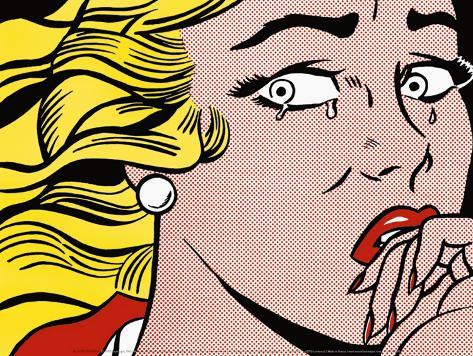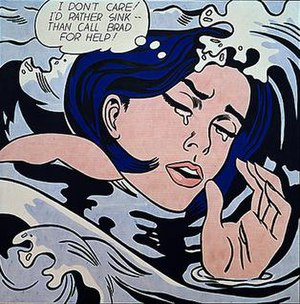Roy Lichtenstein was one of the most influential and innovative artists of the second half of the twentieth century. He is preeminently identified with Pop Art, a movement he helped originate, and his first fully achieved paintings were based on imagery from comic strips and advertisements and rendered in a style mimicking the crude printing processes of newspaper reproduction.
Lichtenstein’s success was matched by his focus and energy, and after his initial triumph in the early 1960s, he went on to create an oeuvre of more than 5,000 paintings, prints, drawings, sculptures, murals and other objects celebrated for their wit and invention.

What makes his art so special is the fact that nothing like this had been done before Lichtenstein came along. A lot of art critics did not take his art seriously because to them it wasn’t “real art“.

His work, along with that of Andy Warhol, heralded the beginning of the Pop art movement, and, essentially, the end of Abstract Expressionism as the dominant style. Lichtenstein did not simply copy comic pages directly, he employed a complex technique that involved cropping images to create entirely new, dramatic compositions, as in Drowning Girl, whose source image included the woman’s boyfriend standing on a boat above her.


Later in his career, Lichtenstein was particularly fascinated by the abstract way in which cartoonists drew mirrors, using diagonal lines to denote a reflective surface. He once remarked, “Now, you see those lines and you know it means ‘mirror,’ even though there are obviously no such lines in reality.”

Sources
https://lichtensteinfoundation.org/biography/
https://www.theartstory.org/artist-lichtenstein-roy.htm
http://www.dreamwallsglass.com/2012/06/roy-lichtenstein-mirrors/
https://www.tate.org.uk/art/artists/roy-lichtenstein-1508